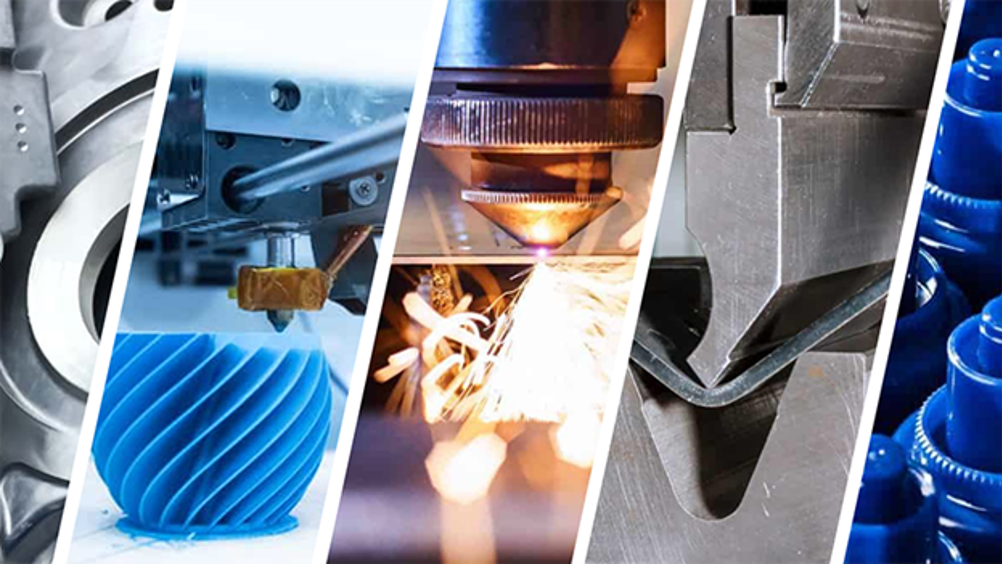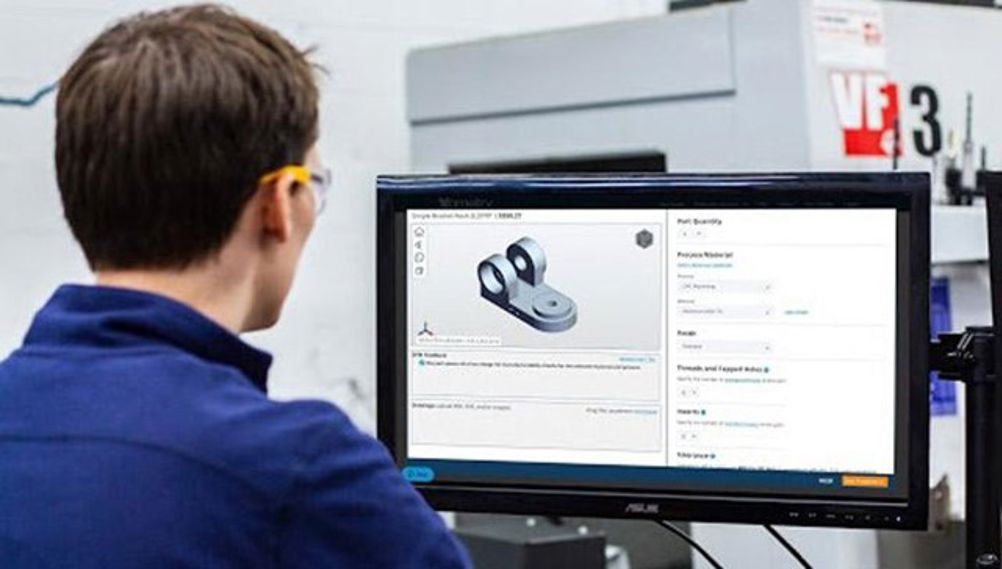
Manufacturing supply chains in the United Kingdom have faced major disruptions since 2020, mainly because of the trading and geo-political landscape. As a result, this has created supply chain complexities, making it more difficult to source manufactured components. For UK engineers this poses a strategic risk to their projects, and as a result, they are seeking new ways to strengthen their supply chains.
Matt explains his take on the current supply chain complexities, “Building resilient supply chains is key for engineers to achieve project success and for businesses to gain a competitive edge. The disruption we see in UK supply chains is driving engineers to diversify and seek new smarter ways of sourcing their manufactured parts. Supply chain technologies are evolving and the rise of on-demand manufacturing is empowering engineers to source parts more efficiently.”

What is On-Demand Manufacturing
The word “manufacturing” is likely to be associated with large-scale manufacturing plants and assemblies with complex machines churning out numerous products continuously. While this manufacturing system is traditional and ubiquitous, a rapidly rising manufacturing model is becoming increasingly popular as it addresses several of the limitations inherent in conventional manufacturing. This model is known as on-demand manufacturing.
There are two enablers of manufacturing on demand, the first being the internet and cloud-based technology. These technologies enable companies to create advanced online platforms that allow engineers to upload models and receive auto-generated design-for-manufacturing feedback, in addition to highly accurate instant quotes.
The second enabler is a network-based model, where a distributed manufacturing network of trusted suppliers produce the parts. As a result, engineers save significant amounts of time using a single supplier, an on-demand manufacturer, instead of sourcing multiple parts from many suppliers.
“On-demand manufacturing gives engineers more time to innovate, with less time spent seeking pricing and having to liaise with multiple suppliers.” Matt adds.
Accelerate Part Sourcing with On-Demand AI Technology
Data centric approaches are transforming the world of engineering. On-demand manufacturing platforms provide a means of communication between thousands of manufacturers and customers.
Matt explains what role emerging AI technologies has to play in the engineering sector, “New technologies, such as AI, are being integrated into everyday lives, especially at work. Engineers are facing the immense pressure to deliver projects faster, whilst meeting client’s demanding specifications and always improving from the past. There are many concerns around AI’s growth but for business purposes, it can really speed-up our efficiency, allowing us more time on the important stuff, with less time on administrative tasks.“

Artificial Intelligence (AI), a current buzzword, is an invaluable tool for quickly costing-up parts, streamlining workflows and saving valuable time, enabling engineers to optimise their designs faster than ever before. An example of such is Xometry’s AI Instant Quoting Engine®, which allows engineers to instantly upload CAD models to get a quote for their part, receive direct feedback for manufacturability, and access to a huge network of 10,000 vetted manufacturers all across the globe.
Supporting Local and Global Manufacturers
The relatively low cost of on-demand manufacturing technologies such as CNC machining and 3D printing significantly contributes to the growth of manufacturing on demand. Traditional manufacturing plants comprise several expensive machines. On the other hand, the machines used to carry out most custom manufacturing operations are relatively compact and inexpensive, allowing numerous companies to be involved in manufacturing. Thanks to this business model, small-scale plants can use their machines more efficiently by filling out free capacity with on-demand projects.
Matt explains how manufacturing on demand is transforming the industry, “On-demand manufacturing will be a new concept to many engineers but this method of sourcing parts is growing rapidly, driving positive change in the UK supply chains. Where engineers can source their parts locally and even globally, transforming the way that problems are solved. The possibilities are endless with manufacturing on demand - it really is revolutionising the industry!”
Part Customisation for Any Industry
There are numerous custom manufacturing technologies on-demand manufacturing can provide, from 3D printing to sheet metal fabrication and CNC machining to name a few. In addition to the numerous materials and post-processing finishes that engineers require for precision parts.

Matt mentions one of the latest technologies at Xometry, “We have recently introduced vapour smoothing for 3D printed parts. It's a game-changing post-processing technique in the realm of 3D printing. The parts have a sleek professional-grade finish which improves the aesthetic and mechanical properties.”
The needs of engineers vary significantly, as do their projects. On-demand manufacturing allows engineers from a wide range of industries from Aerospace to Energy and even Medical Devices, to deliver precisely what their customer wants in terms of quantities and manufacturing specs.

Matts recalls a recent client project, “With on-demand manufacturing, an engineer can order a single prototype or high volume serial parts, no matter how complex it is, and have it made and delivered in very little time. We work with so many clients in diverse industries, which means I get to be involved in some pretty exciting projects. One that comes to mind is Pembleton Motors. We supplied the parts to build their iconic cycle cars. I visited the Silverstone car show this year and it was a great moment to see the Pembleton cycle car on display there.”
Unlimited Capacity for Resilient Supply Chains
The MaaS model of on-demand manufacturing ensures that engineers never have to personally source for an available manufacturer. Instead, the supply chain manager or on-demand platform finds a suitable and available manufacturer within the network on behalf of the customer.
Matt explains how the MaaS model works, “Many customers I work with are often surprised when they find out Xometry places their jobs with manufacturers not solely on price but also on best suited capability. For us, it's important that parts are manufactured to the highest quality whilst achieving a competitive price - the two go hand-in-hand.”
Matt continued “With over 10,000 manufacturers in Xometry’s partner network, there is always available capacity, which provides engineers with real flexibility to get parts made as and when they are needed without having to hold stock.“

Boosting Innovation in the Engineering
The regular interaction between customer and manufacturer, shorter lead times, flexibility and operational transparency of custom manufacturing has greatly improved the rate of technological advancements.
Engineers and innovators can design products and have a single prototype or high volume serial part manufactured at a remarkable speed. Prototypes can then be used to perfect the final product, scale production and enable the customer to launch their product rapidly to market.
The combination of CAD platforms such as AutoDesk and Solidworks, and on-demand manufacturing, has dramatically increased the number of awesome products that enter the market daily.
On-demand manufacturing is rapidly revolutionising the UK supply chain, increasing the rate of innovation, and making manufacturing accessible to individuals and corporations alike. In the past, only large corporations could afford the expenses involved in researching, designing, prototyping, testing, and manufacturing a new product. However, today, just about anybody with a brilliant idea can make their idea a reality with on-demand manufacturing.
Matt Dixon, Head of Sales at Xometry UK




First seven members join NG’s Great Grid Partnership
Agreed. It is all pretentious posturing and trite branding with no meaning or gravitas. Prepare to be disappointed by all of these greats/grates.